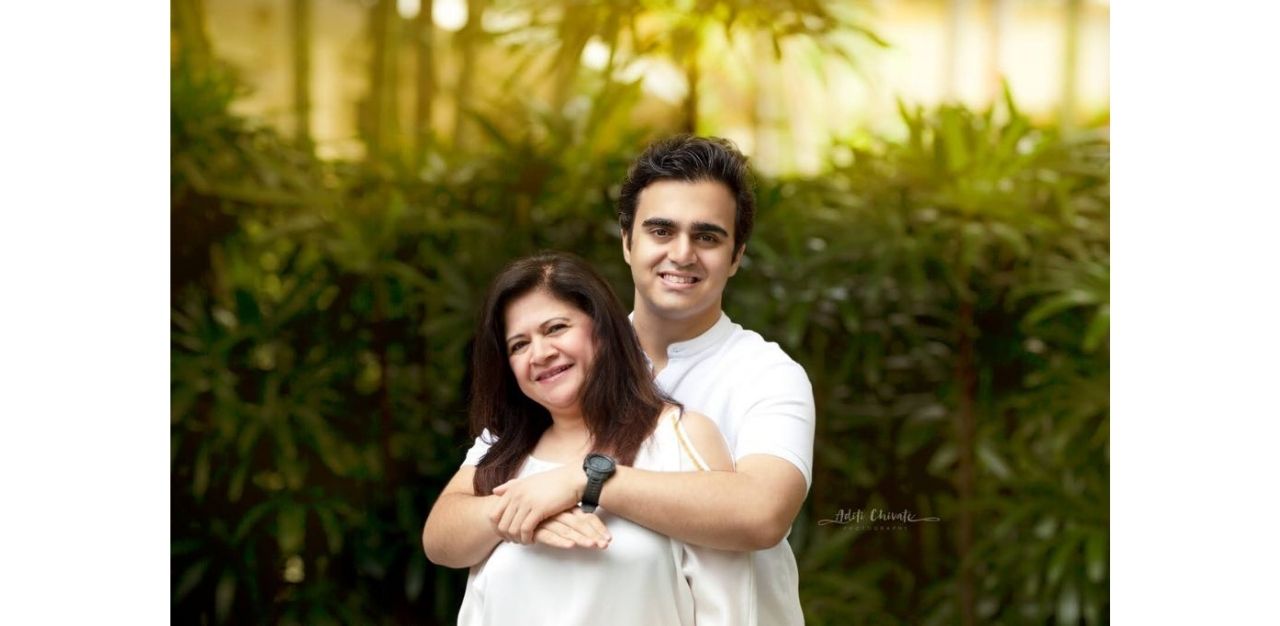The SOS Kitchen
When Shilpa Sharma noticed that her eighteen-month-old son Saahil was not hitting the same milestones as her first-born daughter, she suspected something was amiss. Saahil was diagnosed with autism at the age of three.
“I was in complete denial for the first six months,” she says. “It’s a hard pill to swallow, but my husband pushed me to face reality, and deal with it together, head-on.”
With dedicated therapy over the years, Saahil has now managed to overcome his sensitivity to sensory stimuli, such as the sound of the pressure cooker or the vacuum cleaner. “These days, he mainly faces social anxiety and does not necessarily know how to keep a conversation going, especially with strangers,” she adds.
Autism or autism spectrum disorder (ASD) refers to a broad range of conditions, one of which is having a very intense and focused interest in specific areas. For Saahil, this happens to be food. “I think that’s the thing with autism. If you have a certain obsession and you make it work for you, it might turn out to be the greatest gift,” says Mrs Sharma.
According to her, apart from writing murder mysteries, her 23-year-old son is a big foodie and has an extremely developed palate. “Give him a chilli anywhere along the Scoville scale and he will try it,” she says. It was during his last year studying online at the University of Sydney that Mrs Sharma decided to capitalise on his interests.

“We knew that a 9-to-5 job was out the window,” she says. “Even [neurotypical] folks often get workplace anxiety and stress, so you can imagine what a special needs individual will be going through. It’s not easy.”
While it is very important that Saahil is able to support himself in the long run, it isn’t just about accepting any employment opportunity that comes his way. Mrs Sharma found that playing to his strengths is crucial.
“He has tried working as a waiter in a cafe with an inclusive hiring policy before, but I don’t think that’s what he was set out for,” she says. “Saahil is more creative, and when he’s in the kitchen putting flavours together, that’s where he really shines.”
It was Saahil himself who decided to start experimenting with sauces and he came up with the name for their business, The SOS Kitchen. He questions the norm of having only sweet jams and wonders why people don’t make spicy jams, and “wants to make sauces so spicy that you’d have to call the ambulance,” Mrs Sharma says.
Started during the Covid-19, the mother-son duo’s business now has at least 200 returning customers. It is also featured on multiple e-commerce platforms and physical stores, and sells between 800 and 1,000 jars monthly.
“I think the pandemic has worked for us. Then people could no longer go out to eat, so they started cooking at home,” she says. “But they wanted easy, affordable recipes and ready-to-eat sauces. That’s our appeal and we’ve even made it our hashtag — #cookingmadeeasy.”
Saahil is involved in every part of the business — from accounting to social media marketing, and even liaising with and pitching to potential stakeholders such as NTUC, Shopee, and Phoon Huat. “It’s all for him, it’s his business. The end goal is for him to take over the entire enterprise one day,” she adds.
With no prior experience in the F&B industry, Mrs Sharma, a dancer by profession, and her son have garnered much backing and support from food startup accelerator, Innovate 360, as well as their OEM partner, Thai Sing.
Mrs Sharma doesn’t view her son’s autism as taboo. “If anything, his obsession with food was how our business came about,” she says. At the same time, they avoid actively advertising The SOS Kitchen as a special needs business. “We don’t want people to buy a product only because it is made by somebody on the spectrum, but because the product itself is good,” she says.
Moving forward, Mrs Sharma hopes that neurotypical people take more active steps to befriend special needs individuals like Saahil. “It’s a common misconception that people with special needs have no compassion or empathy, but often they have more than anyone else,” she says.
Soul Food
Husband and wife duo, Gerald Png and Anne Wong-Png, started Soul Food on 11 January 2008, with their differently-abled daughter Cheryl in mind. She was then 16. But the idea of starting a business for her dated way before that.
“It was my hope for Cheryl to be gainfully employed and contribute meaningfully to society,” says Mr Png. “In those days, the general awareness, as well as options for training and employment for those with special needs, were few and far between.”
The pair noticed then that their daughter had an inclination for food preparation. From a very young age, she was already percolating coffee and making breakfast for them. “I think it was the sensory experience and affirmation that she cherishes,” says Mrs Wong-Png.
Soul Food’s slogan, “Made by Many Hands”, signifies the duo’s dedication to make every employee an essential contributor to the business. (Video courtesy of Anne Wong-Png)
Mr Png gradually started getting her more and more involved, and it sparked the idea that they should start a food business. This birthed Soul Food. “We had hoped that Cheryl would benefit from not just a job, but a community,” he says.
Thirteen years on, Soul Food has expanded to an inclusive team entirely made up of differently-abled people and the couple has taken about 30 differently-abled individuals under their wing, looking beyond labels and identifying inclinations instead.
Soul Food’s slogan “Made by Many Hands”, signifies the duo’s dedication to make every employee an essential contributor to the business. “Our differently-abled team is not just expected to do basic tasks such as cleaning tables, wiping chairs, and mopping floors,” says Mrs Wong-Png.
Employees are gradually given opportunities to pick up new skills based on how ready they are. “For instance, Anne manages the front-of-house (FOH), where it’s much more dynamic because guests may have different needs and expectations,” says Mr Png. Mrs Wong-Png helps identify those with the potential for the FOH service, with the ultimate goal of having everyone on the team be seen and heard.
Having no playbook for employers of differently-abled individuals, Mr Png shared that it has been a steep learning curve, and the couple highlights that working closely with each staff member and his or her family is key.
“Family support and trust is key to our success in training and honing the skills of our team, and we endeavour to build good working relationships with them,” says Mrs Wong-Png. Having said that, the parents of staff members are often reminded that Soul Food is a business and not a caregiver service at the end of the day.
Other than the creative aspect of tinkering with recipes, Mr Png shares that his staff has to learn the culinary discipline of sanitising workstations and cooking equipment, which help to impart important and transferable skills to other aspects of life.
“Even if our staff members or their parents decide that they no longer want to be a part of our team one day, they would have at least gained both tangible and intangible life skills for themselves, such as discipline, and cooking and cleaning up after themselves,” adds Mr Png.
Over the years, the restaurant outlet has built a community of regular patrons who have been fundamental in creating a safe space for the staff. “We regularly share with many of our guests-turned-friends how to interact appropriately with our team, and to excuse them if they don’t respond or walk away when they feel overwhelmed at times,” says Mrs Wong-Png.

Note: TheHomeGround Asia acknowledges that preferred terms for special needs individuals might vary. The terms above are used in accordance with our interviewees’ preferred terms.
Join the conversations on TheHomeGround Asia’s Facebook and Instagram, and get the latest updates via Telegram.














